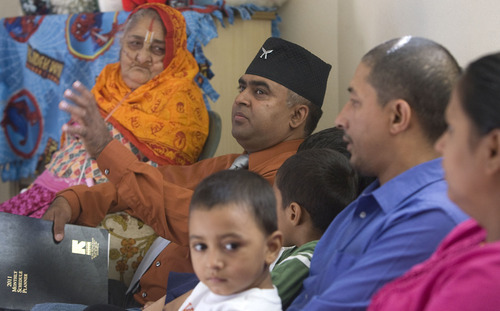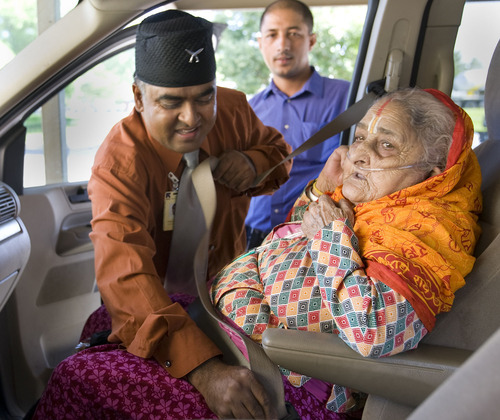This is an archived article that was published on sltrib.com in 2011, and information in the article may be outdated. It is provided only for personal research purposes and may not be reprinted.
When Ghana Dulal stopped by a Bhutanese family's apartment last week, he knew exactly how the struggling refugee family felt.
Though he's now a caseworker, shepherding newcomers through the process of resettling here, it was only three years ago that Dulal was a new refugee in Utah himself. He learned he would move to a place named Utah just before he boarded a plane to America.
With the help of his excellent English — many Bhutanese refugees studied English before they left their country — Dulal, 41, quickly found success. This week he will represent the more than 25,000 refugees in Utah at the first refugee congress held in Washington, D.C.
The two-day event, sponsored by the United Nations High Commissioner for Refugees, brings together 60 refugees in honor of the 60th anniversary of the United Nations Refugee Convention, which defines refugees and their rights. At the congress, refugees will share their experiences and give feedback on how to change the U.S. program and international refugee policy.
"We want refugee voices involved in refugee policy," said Charity Tooze, senior media officer with UNHCR.
Dulal fled Bhutan in 1991, when the ruling government forced the Nepali people to abandon their culture and began kidnapping and arresting members of the ethnic group before threatening to kill them.
His family left their cornfields, untied the animals and walked for two days to reach the border with India, bringing little more than a change of clothes, rice, pots and a beloved calf. They eventually reached Nepal, where he lived for 18 years, teaching at an English-language private school.
But they were not fully welcomed by the country and remained in a kind of citizen-limbo.
"We didn't have anything to call our home," Dulal said. "Everywhere we faced some kind of discrimination."
At first nervous about life in Utah, he quickly found work as a cashier at Salt Lake City International Airport. Now a caseworker at the International Rescue Committee, his job is to help refugees navigate their new lives.
Life is unquestionably better in Utah now that he and his wife work and his children attend school. Last year they became homeowners.
"I have started being a very little American," he said.
As someone whose profession is steeped in the daily challenges refugees face, he knows the newcomers must learn English to succeed. More than a year after arriving, the family he visited last week knows little English and still must rely on Dulal for everything from help driving to immunization appointments to translating mail. They are grateful for his knowledge.
Though the resettlement system is not perfect, Dulal is hopeful for this family and many others.
"In the long run, the resources we have are not sufficient and the services we provide are not always enough," he said. "They are learning — and ultimately, slowly, the children will be growing up and [the father] will be learning English. So definitely we are optimistic that their life will be better than it was in the camp."
How many Bhutanese refugees livein Utah?
About 950 Bhutanese refugees have been resettled in Utah in the past few years, joining more than 25,000 refugees from around the world. To learn more about refugees in Utah, visitrefugee.utah.gov.





